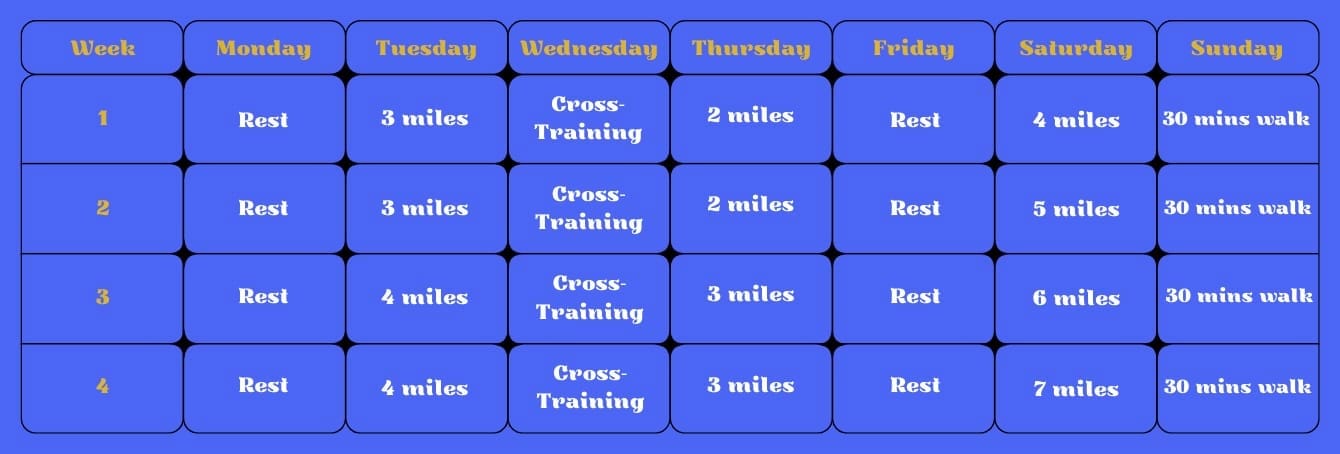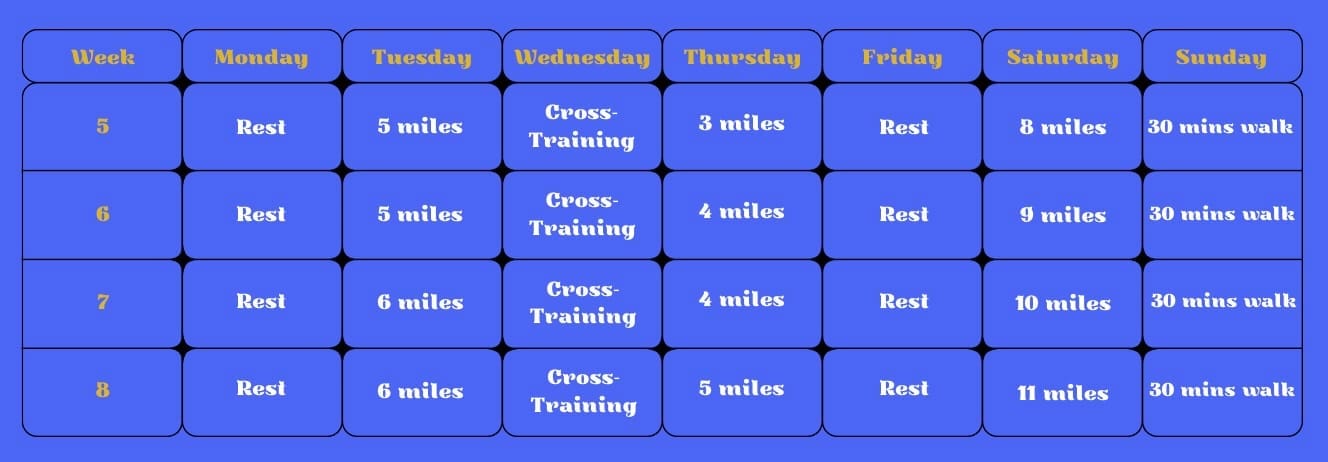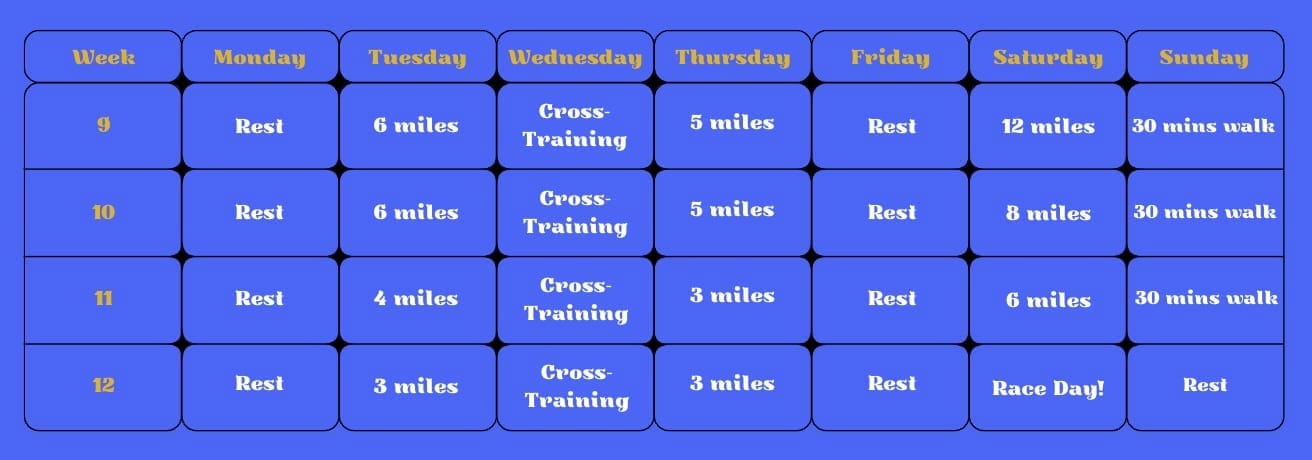Training for Your First Half Marathon: A Complete 12-Week Guide to Success
Running your first half marathon is an exhilarating journey that tests your physical limits and boosts your mental resilience. Whether you’re a novice or looking to transition from shorter races, this comprehensive 12-week training guide will equip you with the knowledge and confidence to cross that finish line successfully.
Understanding the Half Marathon
Before diving into training, it’s essential to understand what a half marathon entails. A half marathon covers 13.1 miles (21.1 kilometers), a considerable distance that demands respect and preparation. Whether you want to improve your fitness, achieve a personal best, or enjoy the camaraderie of fellow runners, knowing your “why” will keep you motivated throughout the training process.
Getting Started: Pre-Training Considerations
Assess Your Current Fitness Level
Before embarking on this journey, assess your current fitness level. Consider the following:
- Have you been regularly running?
- What distances are you comfortable with?
- Do you have any injuries or health concerns?
If you can run at least 3 miles comfortably, you’re ready to start your half-marathon training.
Invest in Proper Gear
Having the right running shoes and gear can significantly impact your training experience. Visit a specialty running store to find shoes that fit your gait and foot shape. Additionally, consider moisture-wicking clothing to enhance comfort during long runs.
How Long Should You Train For A Half Marathon?
When planning to train for a half marathon, aiming for at least 12 weeks is an intelligent approach. This time gives you enough time to build the endurance, strength, and mental resilience needed to comfortably tackle the 13.1-mile course. If you’re starting from a point where you can run about 3 miles, this 12-week plan will guide you to gradually increase your mileage while improving your running form. If you’re new to running, consider extending your training to 16 weeks. This extra time can help you build a stronger foundation and reduce your risk of injury.
Training Plan For Running A Half Marathon: 12-Week Training Plan
Weeks 1-4: Building a Strong Foundation
During the initial weeks, the goal is to establish a consistent running routine. Here’s what your training could look like:

Weeks 5-8: Increasing Endurance
As your body adapts, you can start to increase your mileage and introduce more varied workouts:

Weeks 9-12: Fine-Tuning Your Training
In these final weeks, you’ll taper down your training slightly to prepare your body for race day:

Incorporating Strength Training and Cross-Training
While running is your primary focus, incorporating strength training and cross-training can enhance your overall performance and reduce injury risk. Aim for 1-2 sessions of strength training per week, focusing on your core, legs, and upper body.
Suggested Exercises
- Core: Planks, Russian twists, bicycle crunches
- Legs: Squats, lunges, calf raises
- Upper Body: Push-ups, tricep dips, shoulder presses
Cross-training can include cycling, swimming, or yoga. These activities not only help maintain your fitness but also give your running muscles a break.
Nutrition: Fueling Your Body
Proper nutrition is vital for successful training. Here are some key points to consider:
Pre-Run Nutrition
- Hydration: Start your day with water and continue to hydrate throughout your runs.
- Carbohydrates: Opt for easily digestible carbs, such as oatmeal or bananas, before runs lasting longer than an hour.
Post-Run Recovery
- Protein: Incorporate protein into your post-run meals to aid muscle recovery. Options include lean meats, eggs, and plant-based proteins.
- Electrolytes: Consider replenishing electrolytes after long runs with sports drinks or electrolyte tablets.
General Eating Tips
- Aim for a balanced diet rich in whole foods, including fruits, vegetables, whole grains, and lean proteins.
- Experiment with different foods during training to find what works best for you, particularly for race day.
Tips for Race Day Success
Prepare Your Gear
- Lay out your race day outfit the night before, including your shoes, clothing, and any gear you need (like a watch, energy gels, or water bottle).
Stick to Your Routine
- On race day, stick to the routine you practiced during training. This includes your pre-race meal and warm-up.
Pace Yourself
- Start slow! It’s easy to get caught up in the excitement and start too fast. Aim to run at a comfortable pace for the first half and save your energy for a strong finish.
Stay Positive
- Maintain a positive mindset. Focus on the training you’ve completed and remember that many others are in the same boat.
Conquer Your First Half Marathon
Training for your first half marathon is an exciting challenge that can lead to personal growth, improved fitness, and a sense of achievement. By following this 12-week guide, you’ll build the strength and endurance needed to cross the finish line confidently. Remember, every step counts, and each run brings you closer to your goal. So lace up those shoes, embrace the journey, and enjoy every mile!